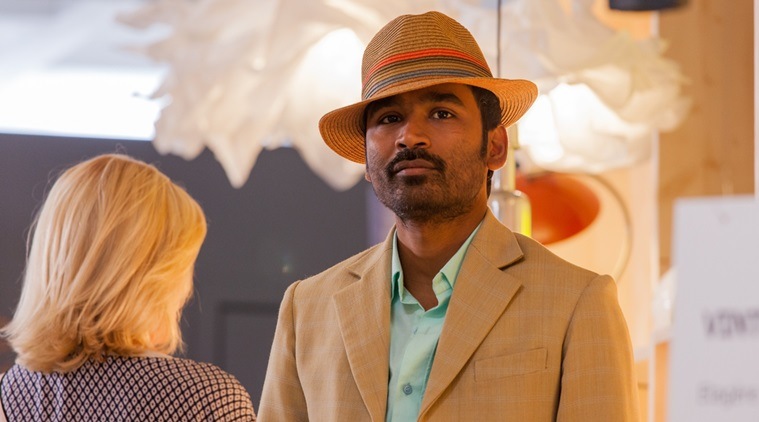
Alfred Hitchcock said, “To make a great film, you need three things: the script, the script and the script.” I have not read ‘The Extraordinary Journey of the Fakir Who Got Trapped in an Ikea Wardrobe’ by Romain Puértolas, but I am sure it wasn’t a boring story as it is told on the screen—despite a likeable Dhanush’s acting. This is what happens when a film is made based on a book. Not all compelling stories can be made into compelling films because reading is a very personal exercise between the reader and the author. Sometimes, it is all right to admit the book is better than the film and move on.
The Extraordinary Journey of the Fakir opens with Ajatashatru Lavash Patel aka Aja (Dhanush) narrating a story to a group of juvenile criminals from a Mumbai slum. We are shown how a materialistic Aja goes on a self-discovery path eventually.
Cut back to young Aja’s life. He lives with his single mother and Mohini, a cow. Aja performs magic on the streets. One day, he asks his mother, “Are we poor?” She says, “No, we have each other.” Take this beautiful scene for instance, where the mother makes her child understand reality. In books, it is easy to understand what a character thinks and it is evident how he or she processes the information. But you can’t show the process (which happens) on screen. I am not saying it is impossible. It is difficult. The commercial success of book-to-screen adaptations is always tricky.
Aja is a naughty kid. He looks at passersby and asks his mother if any of them was his father because she refuses to tell him the truth. Later, she reveals she wants to visit Paris where his father (a trickster) stayed. She passes away suddenly. Aja takes her ashes to the place. Again, this is a fantastic example of how the whole scene could have been better if they weren’t mere reproductions of the original text. I am not saying they were. But it looked and sounded so. It is hard to condense—say 500 pages of a book into 100 pages of a script. Especially, when you are compelled to tell something within a specified time frame.
Aja is an adult now. He travels to Paris with a fake 100 Euro note. He experiences love among other things. He meets Marie (Erin Moriarty) at a furniture store. There is an instant connection and they fall for each other. Aja says, “Sorry, honey. I couldn’t join you for dinner.” Marie replies, “I’m pregnant.” They plan to meet at the Eiffel Tower the next day, but Aja doesn’t turn up. He finds himself shipped to some other country with migrants. Here, you understand that turning an interesting situation into an interesting scene is not simple.
Aja gets to travel for some more days, thanks to his fair share of misadventures. During one such trip, he lands up in the wardrobe of a renowned Hollywood actor Nelly Marnay (Berenice Bejo). Oh, also, on his way, he turns his shirt into a canvas. All of these things are okay, but somewhere I feel the focus of the story is lost. I am not saying the whole angle of finding-himself-in-a-wardrobe is unconvincing, but ‘why he is placed’ there hasn’t been conveyed properly. You can’t say “it is a fantasy film” and escape.
Okay, these guys make an international film, and how does it feel when a supporting artiste is repeatedly cornered for her choice of being a lesbian? And the funniest aspect is that this gets released during the Pride Month.
I guess when it comes to writing scripts, you feel a lot and think a little. But this film makes you think a lot and feel a little.
The ending of a story is crucial to the success of a film. That way, Kenn Scott doesn’t deliver what was expected of him.
The Extraordinary Journey of the Fakir could have been truly an extraordinary film if Kenn Scott had treated the other characters similar to Dhanush’s. So, how can someone make a film without losing the essence of the original? This is where screenwriting comes into the picture. We need more screenwriters who look for the film in a book. Not otherwise.